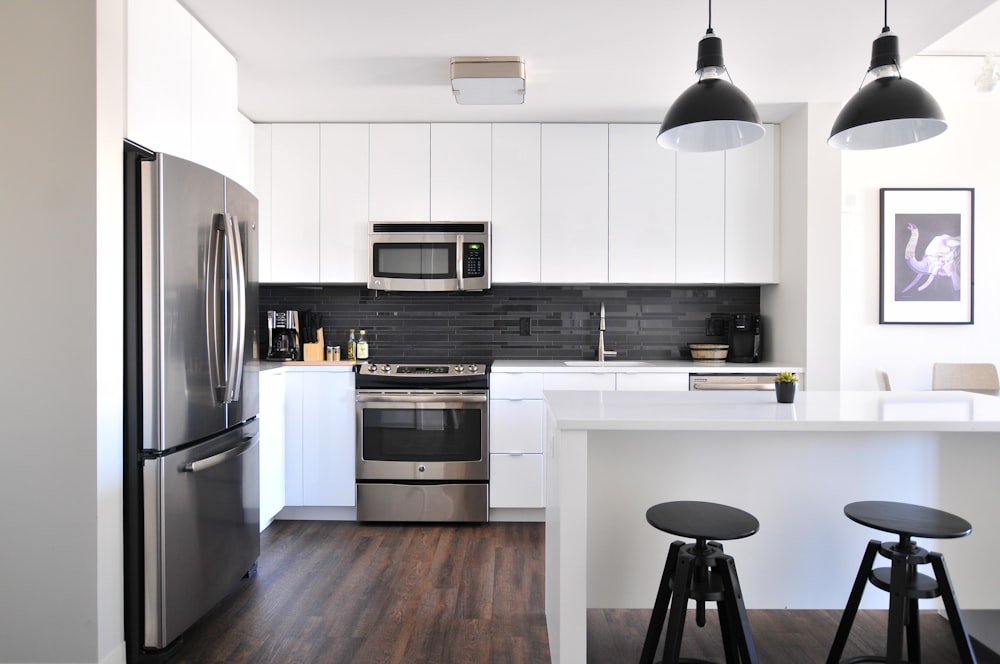I’ve heard of horror stories where you buy a rental property and tenants from hell more in. Should I really buy a house and rent it out?
How do I buy and rent a house and doesn’t become a nightmare? Buying and renting a house comes down to two things – preparation and common sense. Here are the tips you need to know to be successful.
Which property should I pick?
Picking the right property should be your main focus. You can buy a rehab house on the cheap or you can buy a ready to move in house. No matter the state of the house when you purchase it, you need make sure the house is ready to move in before you try to place tenants.

This falls into the the buckets of preparation and common sense. You can try to get a tenant in a half complete house. Be prepare for a nightmare. If you tenant can’t sleep because of broken or not complete jobs in the house, this will be your problem. If they aren’t sleeping, you’re likely not sleeping as well.
Do your homework
If you want to get the best rental price for your home, do your homework. Yes, you brought the properly for income, but why should the client rent your place? Here are a few questions I would ask and have answers to.
- Are there any good restaurants nearby?
- What are the schools in the area? This still applies for people without kids.
- How often does it flood in the area?
- Is this home located in an area that responses slower or faster to inclement weather?
- How flexible is the maintenance services I set up? I working from home on Tuesdays, can the repair man come that day since I’m already home?
Having prepared answers can go a long way with the renter. You can also weave the answers into your native about the place. This is a big decision for anyone renting your place. It’s a good idea to make this decision easy for them. Arm them with as much information as possible.
Are you handy?
If you are great! If not, hire someone to fix the problems with your place before you move tenants in. If you can’t fix things and the goal is get someone in your place as soon possible, I would urge you to get a professional or at least someone competent enough to fix any problem you have with your property.
This definitely falls into the prep bucket. I would also argue common sense. I’m pretty sure you can learn to fix anything. However, it’s very easy to break or make things worse if you don’t know what you’re doing.

To drive this point home. I will share a personal story. I needed to run coaxial cable to the second floor of my house. I decided to drill a hole in the base board of my wife walk-in closet through the outside wall of the house. My wife was very cold during the winter because I didn’t properly weatherize the holes I drilled. Don’t worry I fixed it and this happened many years ago.
This could have turned out really bad. However, I was lucky that no real damage was done to my house. If I had to do it again, I would have gotten help from a friend, family member, or expert with more experience than I had at the time.
Model the cashflow
If you could buy two homes around the same price point but one has more cash flow potential, I would opt for home with the higher cash flow. There are reasons that one home earns more than the other. I would not discount this. Let’s say your home is very close to a great school. Many parents raising kids will opt for this perk and pay more.
Some may argue that a home with a low income have more potential tenants. I say this is short sighted thinking. Here’s an example. I buy a $150,000 home. I put down 20% or $30,000 as a down payment. For home 1, I can fetch rent of $1,200 per month. For home 2, I can fetch rent of $800 per month. Yes, more people can afford $800 per month, but I’m leave $4,800 on the table for my original investment of $30,000 if I go with home 2. I will let you do the math to see how this play out after a few years of rental activity.
Pay attention to the appliances
If you buy a home and the seller agrees to leave the appliances, you inherit the warranties of those appliances. You can see how long the appliances are covered. If the coverage lasts a few months, you have options.

One option you have is to downgrade the appliances. Let’s say the home has a mid to high tier refrigerator. You can sell the unit and replace it with a solid mid tier refrigerator. This effectively resets the warranty of the appliance. Also, you can get 18 – 24 months of free financing for the new appliances. You can float the proceeds of the sale of any appliance for up to 2 years with a little research and effort.
Note: Let me know if you ever want me write about this topic in detail.
Be in charge of the maintain services
You may get a great tenant that loves mowing the lawn or you get a tenant that is terrible at cleaning the pool. Make you life and theirs easy by making maintenance as hassle free as possible. Bake all these services into the rent. Be very clear of what they’re getting. Breaking down the cost and presenting it can help.
Ask for a 2 month deposit
I have personally helped friends and family move in the past. No matter how good you try, you inadvertently break and mess up stuff doing a move. Why? Because you’re not a professional mover. Guess what? Professional movers break stuff too.

To put it in perspective, you lived in the place for a year. It’s taken you a whole year to accumulate of the stuff that you need to move. You’re trying to move it out in two days. Sounds like you’re asking for breakage to me.
This is definitely a common sense play. After the tenant moves out of your place. Check for damages and take pictures. Take total the amount of the damages and deduct it from their deposit and then disburse funds back to them. Don’t get burned by this one.
Put a strong contract in place
If you’re not a lawyer, get a lawyer to draft a contract for you. You want to have an agreement in place that’s easy to understand and is enforceable. We talked about nightmare tenants. Let’s say you put an agreement in place that can’t be enforced. You may develop a squatter because of this. You can easily avoid this with the correct agreement in place.
